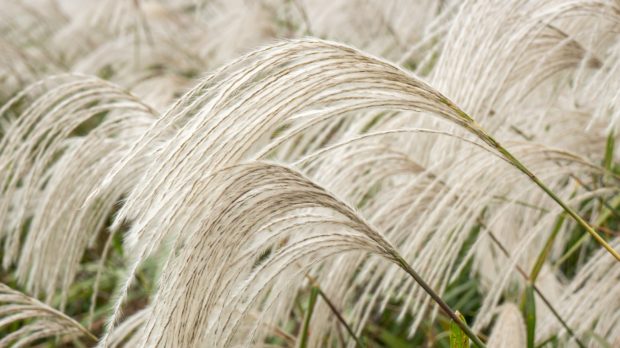You have no items in your cart. Want to get some nice things?
Go shopping
My mother’s rule was to never stand in the bottom third of our garden. Vampires were there. To brush past the miscanthus, the pennisetum, would be to conjure damnation, and the patio, with its rustic planters and elevated trellis, would serve as our viewing platform into the impermeable realm my mother had established as her own since the time we had started to walk.
Part of me longed to see a vampire, hear one gliding through the leaves – I raked back my hair in anticipation, fashioned a cape – and while my friends played rugby on the road, I spent my boyhood evenings pacing the deck, looking out into the long grasses, the topiary, the crown-lifted trees.
It was unclear how hostile the vampires would be – we never saw them, they were great illusionists – and we carried on with our Frisbee, our cricket, our paints and easels, but always cautiously, at the edge of the formal lawn, where the tall leaves rose up and bowed over us and shot pink tufts up in late summer to astonish our neighbours.
Fearful and religious, my sister always used the phrase malevolence incarnate, but our mother treated our vampires closer to garden pests, vine weevils or aphids. Steadily, we increased their remit and began blaming the vampires for all our misfortunes – for late homework, for shingles, for the burglaries that had gripped our town. But just as often, I thought, they appeared to save us, these vampires – they squashed our bad schemes and made us more watchful, inventive.
I was conscious of my body, the assembly of twigs that comprised me. At the lido I was especially afraid to show my hairless concave chest. My mother said not to worry – there had been reports of vampires and so we had better stay fully clothed, conceal our necks. I was a young trembling wraith at the edge of the pool and these instructions more or less saved my preadolescence. I thrashed barefoot in the water with my sister, my t-shirt ballooning up at intervals, happy and tranquil and ecstatically benign.
The vampires stayed with us for several more years. Though my mother was mostly unsentimental, she was romantic about words and was particularly fanatical about the immortal power her last could offer us. When she was dying in hospital, she would croak portentous refrains at the door every time we left for the night, every time she entered into another convulsion. The new lumps in her neck were as rocks. The vampires, she said, had come to take away her throat.
She died in an unusually temperate January. The calendars called it winter but something had taken the chill out of the air. All the snow had melted and the rocks came out, purple, silver, mint-green, and amazed us as though we’d never before seen shale. At her wake, guests dined on the medjool dates she had always loved, so many, while my auntie gave back-to-back readings from her critical childhood diaries. I knew that she had suffered but somehow hadn’t equated that with her being unhappy.
The miscanthus, the fountaingrass, the blue oat, ravenna, the feather reed and prairie natives, were to be dug up and distributed among my grieving relatives, and my mother’s dense paradise was suddenly stripped of its jewels, the grasses she would pass her hands through at dusk while we lounged in the extension and which made her melancholy and alive and more stirred than we, her children, could ever hope to make her ourselves. I had been resentful of the mysterious person her collection of narrow leaves transformed her into, and now, gone, her borders stripped bare and her grasses redeployed around the country, I resented even more the fact that I had no way of bringing either of her selves to the light.
For our part we were left with a man named Carl. This was our father. He was a dentist and gave us stickers of anomalously jolly tigers and bears with Stockholm Syndrome. He wore a deep-sea diver’s watch, had a son from another marriage who lived in Ontario. It was amply clear that we were a pale imitation of the legitimate family he hoped one day to reclaim, and now, my mother being dead, we were a little less than illegitimate – an embarrassment, a travesty, a plague.
I besieged the vampires to take him away. I would sit on the patio and peer down into the bare soil, the pool of the border with its orange dust clouds and torpid midges, I would make my plea. In the morning, as Carl surmounted his breakfast, his cereal flowing out, that kingly jangle, I was always disappointed to find him alive. No vampire swooped down on him in the hallway. Nor did they finish him at the table. We presumed they’d moved to lusher gardens, they longed for opacity. But I came to reason that they had left on account of my acrimony, the acrimony no creature could convincingly match.
A professional recently asked, why vampires? to which I had no response. Malevolence incarnate? It wouldn’t do. In my twenties I had loathed them, removed them from every quarter. I couldn’t stand that they’d saved my mother from her life with us. Now I’m unsure. I take my family to the swimming baths, I watch my little boy undress in thirds, the clumsy shield of his beach towel. I see the grass and jewelry that glitters in the outdoor pool, the tanned churning shoulders, the rough boys capturing the central fountain. He comes into the sun reluctantly. He writhes in his skin. It’s okay, I say, there have been reports of vampires, and we sit and eat our ice-creams, one wraith to another. Our chests are well-hidden beneath our electrifying t-shirts. The vampires nod sagely on the grass.

About Jack Barker-Clark
Jack Barker-Clark is a writer from a valley in West Yorkshire. His fiction has appeared or will shortly appear in 3:AM Magazine, DIAGRAM, Hobart, the Ninth Letter and elsewhere. He is the winner of the Fish Publishing Flash Fiction Prize 2021.
- Web |
- More Posts(1)




